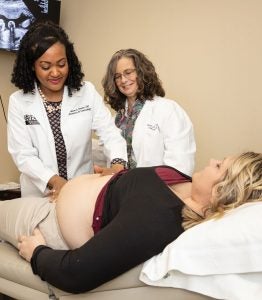Horizons
Changing lives, changing communities

Caroline Galindo
Hometown: Merrick, N.Y.
Major: Birth-kindergarten teacher education
Career goals: Work at or own a day care or be a child specialist in a hospital
Scholarship: Walton Academy & Children’s World Learning Centers Scholarship
What does receiving this scholarship mean to you?
It was the first scholarship I ever received, so I was very happy when I got the news. I think it’s important that more education majors receive scholarships, and we have people like Billy Walton to thank for that. Educators work so hard and do so much. They are waking up every day and changing lives of people and helping shape them. Sometimes they do this on their own dime and time.
What made you want to pursue your major?
I started working at a day camp in high school and fell in love with the children that I got to look after. Their innocence, joy and love just brought me a lot of happiness. It helped me realize that I worked well with children, and it was something I was good at.
Donor spotlight
The Walton Academy & Children’s World Learning Centers Scholarship supports students in the College of Health and Human Performance majoring in birth-kindergarten teacher education or child life. Alumnus Billy Walton ’77 and sons Chad ’05 and Blake ’05 own and operate several child care centers in Greenville. In the future, the Waltons would like their scholarship to include a business or entrepreneurship component to help students understand the business side of child care.
Grant to help new and expectant mothers in rural N.C.
Pregnant women in North Carolina’s rural communities face a lack of access to maternal health services. Now, a $1.25 million grant from the United Health Foundation will help experts at the Brody School of Medicine address that problem.
One in four mothers in eastern North Carolina lives in poverty, and one in eight is uninsured, according to the North Carolina State Center for Health Statistics. Many have trouble getting transportation to prenatal appointments, adequate nutrition and mental health provisions. The challenges increase if the mother has a high-risk pregnancy.
“If she can’t get off work, or can’t leave her other children, or can’t get a ride, or doesn’t have the money for the co-pay, you’re basically terminating her prenatal care,” said Dr. James deVente, associate professor of the Department of OB/GYN at Brody. “When you’re talking about some of the greatest challenges for our patients, geography is huge. Socioeconomic status is huge. Access to specialty care is huge.”
The United Health grant addresses all these concerns. The money will help develop a new care model for high-risk patients, expand telepsychiatry services to better address the mental health needs of expectant and new mothers and decrease food insecurity among pregnant women. This effort is part of UnitedHealth Group’s more than $100 million commitment to support communities and address health care issues during the coronavirus pandemic. It will also enable ECU to provide more care for at-risk patients closer to their homes using telemedicine.
Additionally, the grant will support the expansion of NCSTeP, a statewide telepsychiatry program founded by Dr. Sy Saeed, professor and chair of the Department of Psychiatry and Behavioral Medicine at Brody, to three community-based primary care obstetric clinics serving patients across a 29-county area.
The third prong of the grant addresses food insecurity among pregnant women by expanding the Medical Food Pantry. The pantry provides emergency food bags to patients who have been identified as having food insecurity. The bags cater to patients with different dietary needs like diabetes or hypertension. Now there will be specific bags for pregnant patients.

Dr. Melissa Davies, left, and nurse Monica Horne examine a pregnant patient. A $1.25 million grant will help expectant mothers in rural North Carolina receive health services.
“We know that food insecurity for pregnant individuals leads to more stress, more disordered eating, greater postpartum weight gain, iron deficiency and pregnancy complications,” said Kay Craven, director of clinical nutrition services at ECU Physicians. Given the COVID-19 pandemic, Craven said that insecurity can be exacerbated by higher food prices and limited supplies at grocery stores.
ECU is well-suited to reach the impact goals of the United Health Foundation grant because it has already been working to meet the health needs of the region. Increased funding will boost these efforts and improve outcomes for mothers and their babies, deVente said.
“This will help make eastern North Carolina a better place to be born, and that is something the Brody School of Medicine has been passionately dedicated to for the past 40 years,” he said.
– Erin Ward